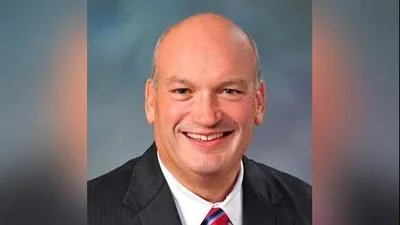Connie Cain, the Republican candidate for the Illinois House District 66 race, believes the COVID-19 school closures were politically motivated. | Connie Cain/Facebook
Connie Cain, the Republican candidate for the Illinois House District 66 race, believes the COVID-19 school closures were politically motivated. | Connie Cain/Facebook
Connie Cain, the Republican candidate for the Illinois House District 66 race, believes the COVID-19 school closures were politically motivated.
"The school closures were all political and largely supported by the Teacher's Unions and the politicians they support," Cain told the Kane County Reporter. "As we know now and knew then, the so-called 'science' showed that children were hardly at risk and should have been in school. The damage the isolation and lockdowns did to children will be a source of study for years."
Voters she meets on the campaign trail generally agree.
"I have not met a single person who says the lockdowns were the right thing to do for their families," Cain said. "I think most of us understand the initial fears that caused the first month of lockdown, but after that, we saw that this was all political and about control."
Cain also believes the state government should have consulted local governments on whether schools should be open or closed.
"School closures or any action deemed necessary by the government should always be scrutinized and subject to safeguards," she said. "What the governor of Illinois did was nothing short of a dictator. If he had any respect for the rule of law and our system of government, he would have made his case to the people and the legislators who represent us."
An October 2021 Unicef report found that government-mandated lockdowns and school closures negatively impacted children, leading to more fear, stress, anxiety, depression, alcohol and drug abuse, loss of learning, and poor physical activity and sleeping habits. Total enrollment in pre-K-12 schools in Illinois declined by 3.6%, or roughly 70,000 students, during the 2020-2021 school year, according to Capitol News Illinois. Chronic absenteeism increased during that school year, with 22.8% of all Illinois students missing 10% or more of all school days.
“We know from national studies from the (U.S. Centers for Disease Control and Prevention) that school districts serving primarily Black and Hispanic students provided the least access to in-person learning last year,” Brenda Dixon, research and evaluation officer for the Illinois State Board of Education, said. “We suspect that less access to in-person learning contributed to lower engagement among Black and Hispanic students.”
The number of students who exhibited grade-level competence in math and English language arts decreased, with 17.8% fewer students demonstrating proficiency in math, and 16.6% fewer students demonstrating proficiency in English.
School districts that offered more in-person learning saw smaller declines in enrollment than schools that used mostly remote learning, Illinois Policy reported. In March, the ISBE announced a $17 million grant to establish a supplemental-learning program for students impacted by learning loss due to school closures, according to a release. The program will be geared specifically toward low-income students.






 Alerts Sign-up
Alerts Sign-up